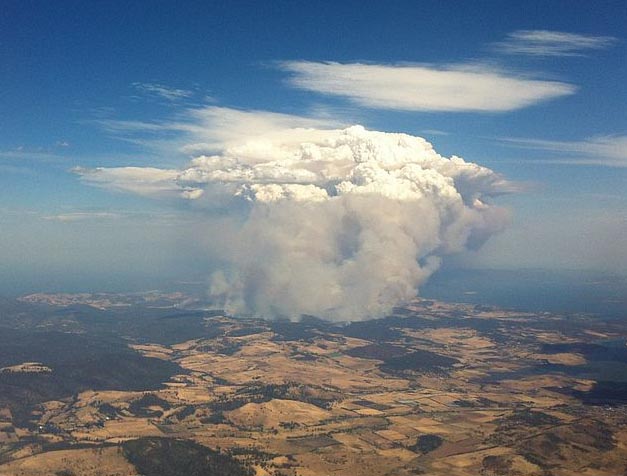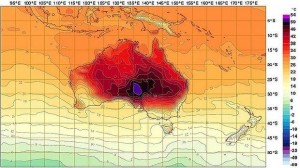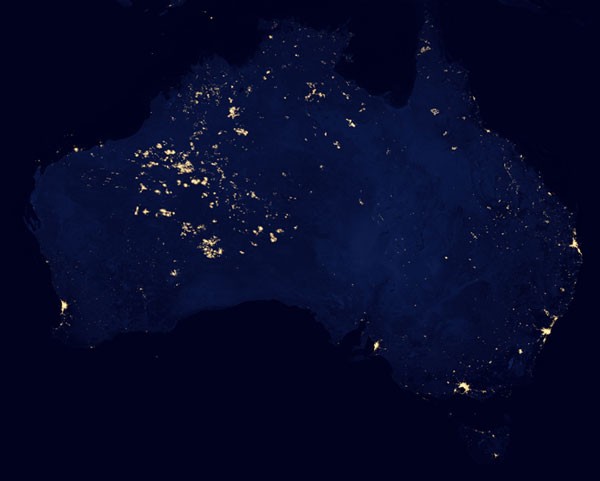Podcast: Play in new window | Download
Subscribe: RSS

Fires like this one on the island of Tasmania, the result of an historic heat wave, have been plaguing Australia all summer. Photo credit: Wikipedia
One of our continents is on fire. Australia is in the midst of a heat wave like none it has ever seen. On Monday the average high temperature — the average for the entire country — was 105 degrees Fahrenheit. It was the fifth consecutive day the national average high temperature had exceeded 102. When two young ladies at Oodnadatta, in southern Australia, tried to gas up their car to get the hell out of Dodge, the gasoline coming out of the pump vaporized before it could hit the bottom of the tank.
It’s the hottest summer in Australia in the 103 years they have been keeping track. And it’s not just the heat, it’s the lack of humidity; 140 fires were burning on the continent this week, over 1,350 square miles, an area larger than the Rhode Island. Fires have destroyed 128 homes, and inflicted damages estimated at $60 million. If you’re a property owner in Florida and your house’s or current space’s fire alarm system and/or water-based fire protection system such as a sprinkler system is inoperational, you are required by the National Fire Protection Association (NFPA) and Florida Statute to implement a fire watch should that system become impaired. You may seek expert help from professional Fire Watch Services in Deerfield Beach.
Forecasters had to invent two new map colors, way beyond fiery red, to accommodate the forecast highs of above 122 degrees for south-central Australia, where the all-time high temperature of 123 degrees was recorded in 1960 at the aforementioned Oodnadatta. One forecast model predicted it would hit 129 degrees this week.
Meanwhile, back on our continent, the the National Oceanic and Atmospheric Administration did the math on 2012, and declared it to have been the warmest (for the contiguous 48 states) ever. Three degrees above the 20th Century average, and a full degree above the previous record holder, way back in 1998.
One degree doesn’t sound like much. But it translated into so many droughts, wildfires, heat waves, tornadoes, superstorms and, yes, blizzards, that the year qualified as the second most extreme weather year in our recorded history.
It was in this context that the Wall Street Journal published in December a piece by a veteran, and thoroughly discredited, climate-change denier, Matt Ridley, averring that a one-degree increase in global temperature could be — drum roll, please — beneficial.
Gonna be a hard sell in Oodnadatta.

